Throughout the urban landscape of the University of Georgia, lush gardens and pathways are being maintained to foster local pollination zones, along with outside spaces for students to engage with.
Pollinators help facilitate the reproduction cycle for most plants, ranging from flowers in a garden to crops that people eat.
The garden curators carefully design these spaces, balancing aesthetic appeal with their vital role in supporting local species in UGA’s evolving urban environment.
“[Having green areas] creates a pollinator corridor. There are nectar sources and host plants for pollinators,” said Debra Mitchell, the curator for the Founders Memorial Garden, a designated pollination zone on UGA’s campus. “Any place you have a green spot, you’re not going to have an asphalt spot.”
Why It’s Newsworthy: Pollination zones provide local pollinators with havens to facilitate the fertilization process, contributing to the preservation of their populations. They also act as areas for UGA’s student population to get away from an urban setting and enjoy nature without having to leave campus.The Founders Memorial Garden
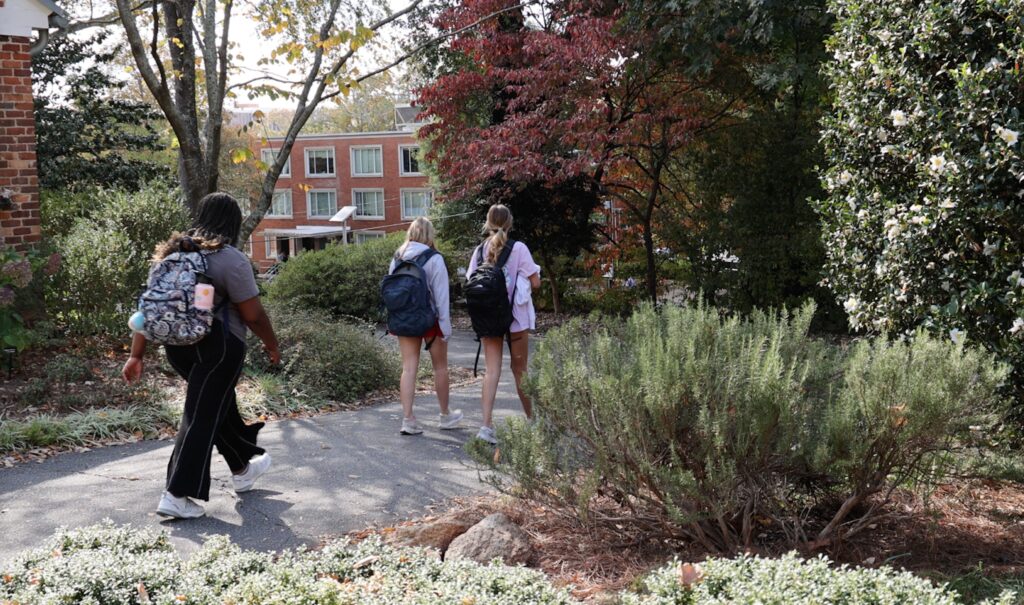
Founded in the 1930s, long before the UGA Pollinator Project was established, the Founders Memorial Garden is known for being home to hundreds of species of plants, giving local pollinators a sanctuary from the growing UGA urban landscape.
The Founders Memorial Garden is known for being aesthetically pleasing, but that does not mean what is planted cannot also be beneficially for local bees, hummingbirds and butterflies, says Mitchell.
In the early days of the garden, previous curators brought in new types of non-native species, which could sometimes be harmful to the local environment. Since taking the head curator position in June 2021, Mitchell has continued on what recent curators have done and been thoughtful in the types of plants that are planted in the garden.
“We’re being more focused on plant health,” said Mitchell. “We’re teaching students that are going into the trade what are good plants to plant, for longevity, that aren’t invasive, and that will attract local pollinators and be a good habitat for other wildlife.”
The Latin American Ethnobotanical Garden
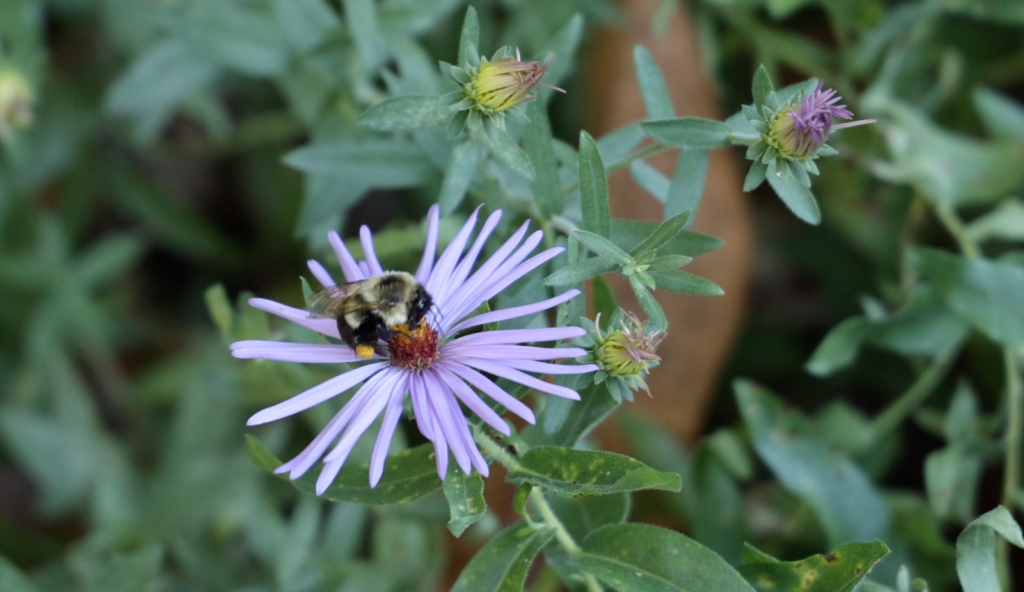
Nestled beneath the shadows of Baldwin Hall, a garden rooted in exotic plants sourced throughout the Caribbean and Latin America has been designed to educate people on nonnative plants.
“Having suburban gardens planted with stuff people pick up at Lowe’s isn’t really sufficient to provide for pollinators, “ said Paul Duncan, coordinator for the Latin American Ethnobotanical Garden. “Having these garden oases like the Founders Garden, Latin American Garden, the UGArden, and State Botanical Garden are all really important spaces that pollinators can access and do access.”
Though the plants in this garden hold cultural value to Latin America, that does not mean that the plants are not good fertilization stations for local pollinators.
Some of these nonnative plants are in their prime during the lower fall temperatures, allowing local pollinators to utilize this garden from the initial flowers that bloom at the start of growing season until the first freeze in November, said Duncan.
Buzzing Bees
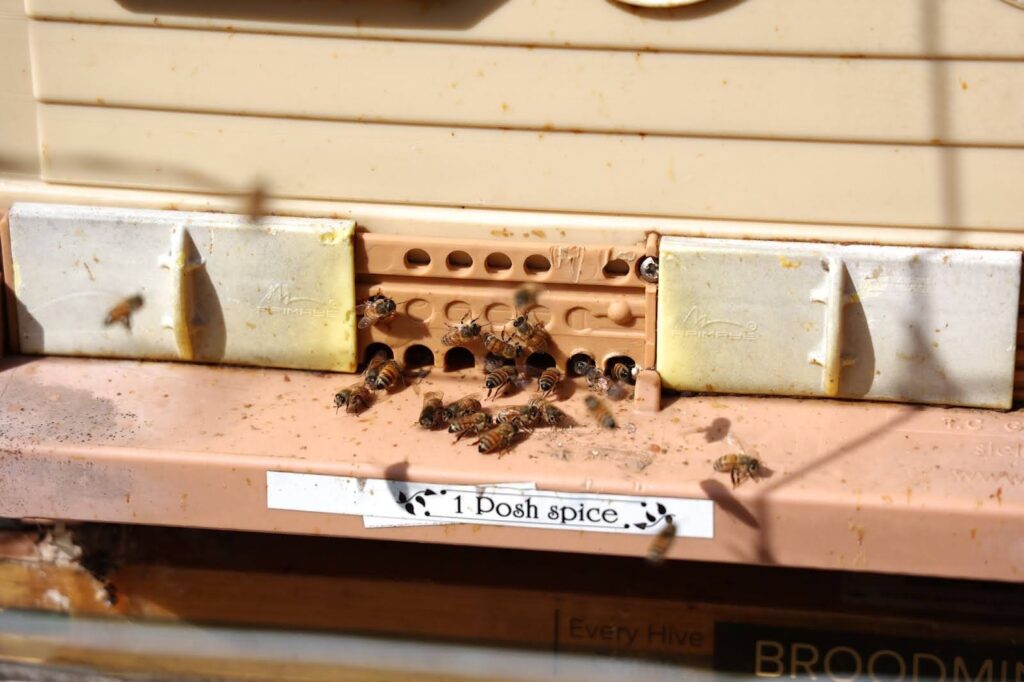
According to Joerg Mayer, a bee specialist and professor in UGA’s School of Veterinary Medicine, bees and other pollinators affect around a third of everything we eat through crop pollination along with pollinating local trees and flowers.
However, in recent decades, there has been a large decline in native pollinator populations, according to Mayer.
“Wherever you pave something over, it’s gonna become the Sahara Desert for pollinators,” said Mayer. “Maybe here or there a flower will push its way up through the concrete or artificial surface where we suffocate nature.”
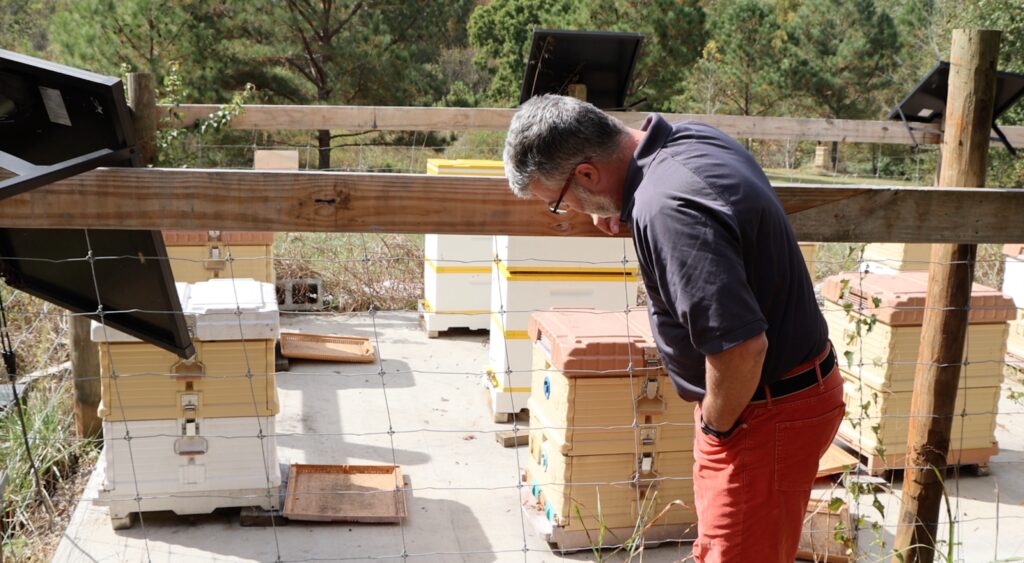
Mayer suggests that urban beekeeping may not be the answer. Artificial hives can contain thousands of bees, creating a supply and demand issue between these bees and local pollinators with surrounding plants and flowers.
By creating urban green spaces, both artificial and local pollinators are provided with new areas to complete the pollination process in these areas.
Students Engaging in Green Spaces on Campus
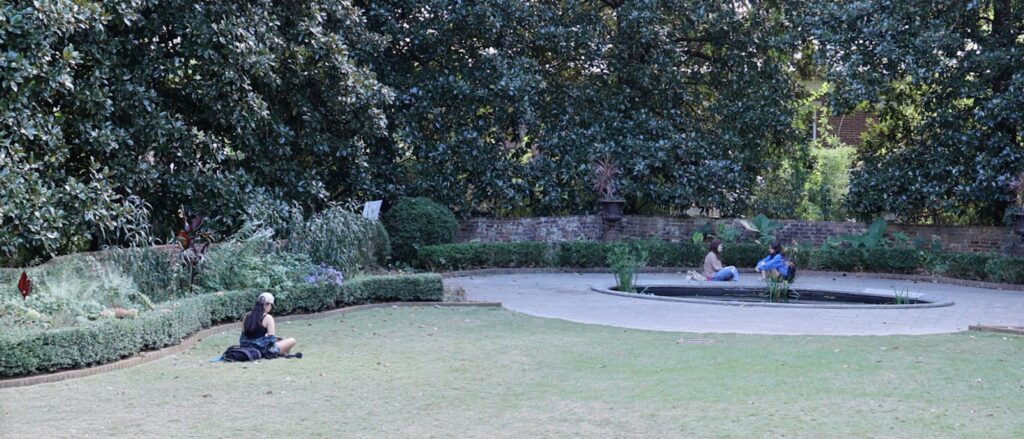
Besides local wildlife, the UGA community also utilizes these spaces. Blaire Mars, a second-year Classics major, often prefers to sit in UGA’s green spaces over the student centers and other buildings.
“I feel a lot more calm and less anxious being outside compared to being in a study room or a little cubicle,” Mars said. “We’re in buildings all the time, and you just need to get outside sometimes and change your perspective.”
Mars acknowledges that there is a time and place when one may need to sit in the Miller Learning Center, but sitting outside can bring a sense of peace, which can help with their mental wellbeing. Scientists have found that sitting outside can reduce negative emotions, like stress and anger.
Green spaces throughout campus create areas for people and wildlife to cohabitate in urban environments. These zones can help maintain local pollinator populations.
“Next time you go to your shopping market, just imagine how empty it would look because a lot of things would be off the shelves [if it were not for pollinators],” said Mayer.
Ben McDaniel is a senior majoring in journalism and political science.







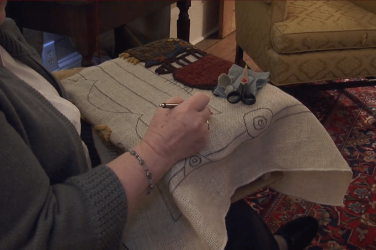

Show Comments (0)